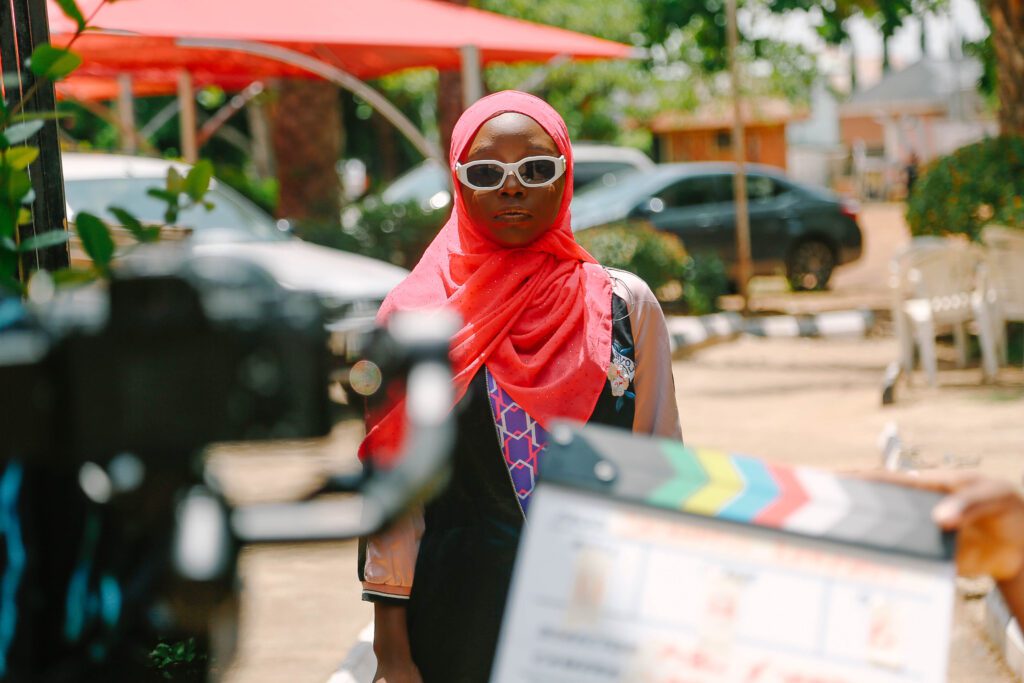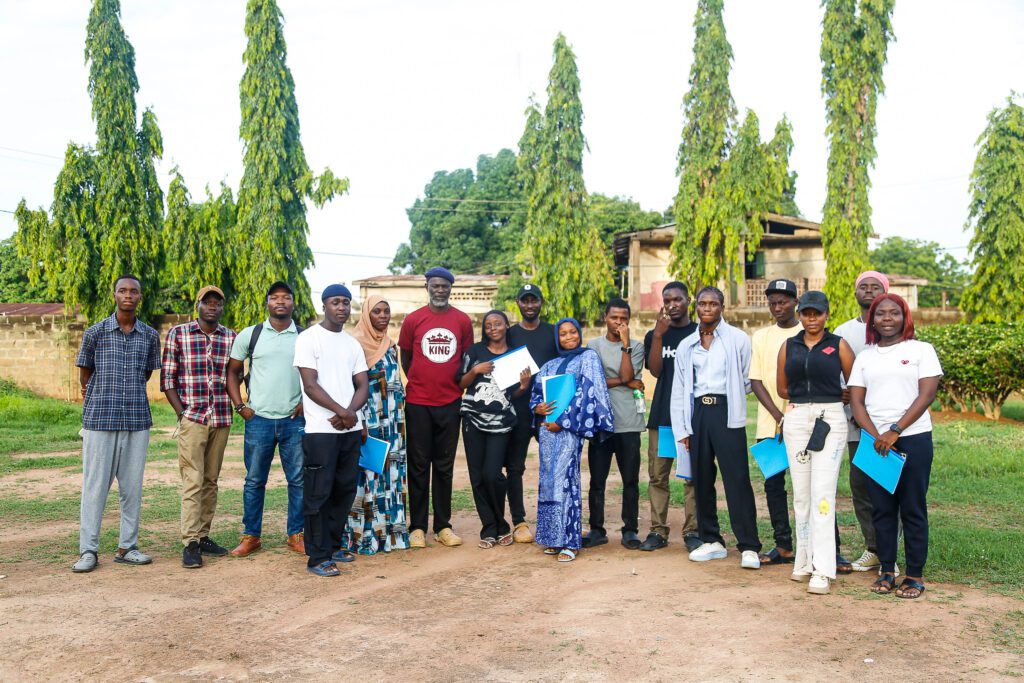The Story⚡
Tradition Meets Modernity in ‘Salamatu’s Rhapsody’

Tell Me More
‘Salamatu’s Rhapsody’ is set in the heart of northern Nigeria and narrates the tale of a pious Muslim daughter who faces a difficult decision. Torn between her father’s desire to honour his late mother and her dream of becoming a rapper, Salamatu must navigate the challenging bonds of family and tradition.
Written and directed by Abu-Bakr Adamu and Adejumo Oluwatimilehin, The short is projected to be released in the last quarter of 2024, and it features a talented cast including Hajiya Hauwa Ibrahim, Habiba Zock-Sock, Wapi Barau, James Oche Ameh, and Maimuna Dikko.
In an exclusive chat with Nollywire, Shimatever Igbawua, the creative force behind Salamatu’s Rhapsody, shared how the British Film Lab Africa programme played a pivotal role in his filmmaking journey.

The British Film Lab Africa programme, known for its rigorous selection process, selected 10 short filmmakers and ten micro filmmakers this year, recognising their exceptional creativity and storytelling skills. For Igbawua, the programme was a real turning point.
“The British Film Lab Africa programme was a game-changer for Salamatu’s Rhapsody,” Igbawua said. “It wasn’t just about the grant money. The real value was in the network I built, the people I met, and the professional recognition I gained. That’s what really made a difference.” He went on to explain how the programme connected him with a broad network of film professionals, both in Nigeria and beyond.
“From day one, I was introduced to a whole new circle of industry people. These weren’t just names on a list; they became my support system and collaborators. Whenever we hit a bump in the road during production or post-production, there was always someone from this network who offered guidance or resources. One notable connection was Wapi Barau, one of our lead actors, through a Film Lab Africa contact.”
Abu-Bakr Adamu, director of the short emphasises the film’s progressive stance: “The perspective shifts from the usual view of what women can or cannot do. While some conservative ideologies believe they are protecting women, true protection involves allowing them to express themselves. Art effectively embodies this principle. Fortunately, the actress who played the role shares a similar reality, making the story feel authentic and easier to navigate. Music is integral to Hausa culture, and everyone acknowledges this truth.”
Adamu adds, “Icons like Mamman Shata, Musa Dan Kwairo, Dan Maraya Jos, and most importantly Barmani Choge used their music to promote and support women. This film continues that legacy by showcasing the modern evolution of music within Hausa culture.”
The British Council’s Film Lab Africa also played a huge role in bringing this film to life. The program trained and financed the project, awarding a grant to Shimatever Igbawua, the film’s producer.
Film Lab Africa is dedicated to nurturing African film talent, providing them with the resources and training needed to create impactful cinema.




